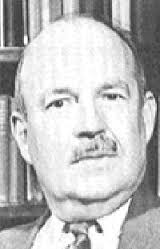 If you’ve never heard of Talcott Parsons, you’ll almost certainly have felt the crushing effects of his ‘sick role’ discourse within medical sociology.
If you’ve never heard of Talcott Parsons, you’ll almost certainly have felt the crushing effects of his ‘sick role’ discourse within medical sociology.
He’s the bloke who argued back in 1951 that being ill means you enter into a state of ‘sanctioned deviance’ and are therefore no longer a productive member of society. And there’s more.
My wicked deviance (for I am legally disabled) must then be ‘policed’ by the medical profession. In short, I disturb the normal social function of society. Chortle. Me?
I’m writing about this as I seem to fall into the camp of an Invisible Illness Unless I Do Something Spectacular, such as fall flat on my face or play pinball with walls. When my condition is obvious, there is an allowance so long as I play by the rules.
Yet when it’s invisible (extreme fatigue, brain meltdown, endless nerve pain), I’m either faking it or playing up to it. I can’t win. I’ve variously been told to give up work, to find a ‘proper’ job, to go on benefits, to stay at home and watch telly. Wish they’d make their minds up.
I’ve recently heard, ‘but you’re taking a Master’s, you can’t be thaaaaaaat bad’. The underlying insinuation being ‘oi you lazy sod, no more malingering, be more… productive rather than floating around in hand-knitted scarves writing about trees and ladybirds’.
Regular readers will know two things about me: first, I struggled badly during the last two years of my degree as I was going through a perpetual cycle of relapses. Second, I no longer have a set career path for a whole host of reasons. So why not push myself into something that will challenge me on every level? In all honesty, it has taken me to the limit. The emails between me and my tutor confirm this – full of doubt, fears of failure and a sense that I really had aimed way too high.
I have since settled down into academic life and my tutor is no doubt relieved not to have to handle any more tracts of self-analysis. And they were pretty badly-written streams of consciousnesses, natch.
So I challenge the sick role wholeheartedly, as have many critics. I am a productive member of society. I am single-handedly raising a well-rounded (and opinionated) Teenager. I run my house well. The cat is always fed. I work. I study. And I always turn up on time for my monthly blood tests at the doctor’s surgery. Early, in fact.
Yet there still exists in society a great desire to hold onto this sick role theory. It suits them; we can be parcelled and put to one side ready for them to cut our much needed support and mock us. We are in the stocks and right now society is taking great delight in chucking everything rotten at us.
Is it just me or does dear Mr Talcott bear a passing resemblance to someone else? Must be the moustache.
